Search Images
Browse Content (p. 745)

Image
Nereid Reclining on a Sea-Panther, Fresco from Stabiae
Roman fresco depicting a nereid reclining on a sea-panther. From Villa Arianna at Stabiae. Naples National Archaeological Museum. 1st century CE.
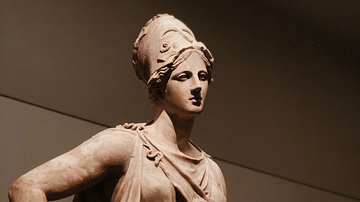
Image
Athena, Protective Deity of Athens
A marble statue of Athena, the protective deity of Athens. Replica of a Greek original, most likely from Italy, either c. 100 BCE or 100-200 CE. (Musee du Louvre Abu Dhabi)
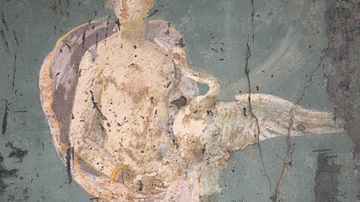
Image
Leda and the Swan Fresco from Stabiae
Roman fresco depicting Leda and the Swan. From Villa Arianna at Stabiae. Naples National Archaeological Museum. 1st century CE.
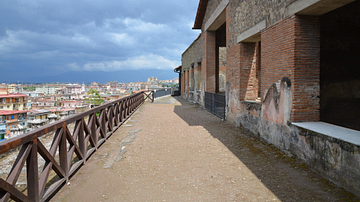
Image
Villa Arianna, Stabiae
The Villa Arianna in Stabiae (southern Italy) was built on terraces and designed to take advantage of the view with a series of rooms arranged in a row overlooking the sea.
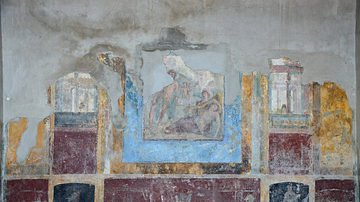
Image
Fresco Depicting Dionysus’ Discovery of Ariadne on Naxos, Stabiae
The triclinium (dining room) of the Villa Arianna in Stabiae (southern Italy) was richly decorated in the Fourth Pompeian Style with a large mythological scene depicting Dionysus’ discovery of Ariadne on the island of Naxos. The villa was...
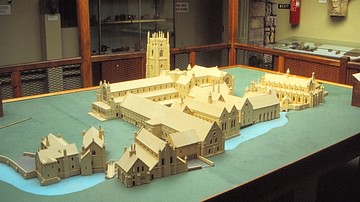
Image
Model of Fountains Abbey
A scale model of Fountains Abbey, North Yorkshire, England. Founded in 1132 CE, the Cistercian abbey was closed in 1539 CE as part of the Dissolution of the Monasteries during the reign of Henry VIII of England (r. 1509-1547 CE).
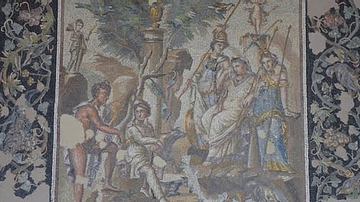
Image
Fountains Abbey
The ruins of Fountains Abbey, North Yorkshire, England. Founded in 1132 CE, the Cistercian abbey was closed in 1539 CE as part of the Dissolution of the Monasteries during the reign of Henry VIII of England (r. 1509-1547 CE).
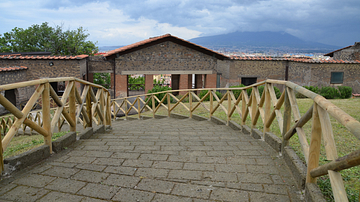
Image
Entrance to Villa Arianna in Stabiae
Villa Arianna is one of the oldest Roman villas in Stabiae (modern Castellammare di Stabia, Italy), dating from the 2nd century BCE. It is situated on the hills of Varano, overlooking the Bay of Naples.
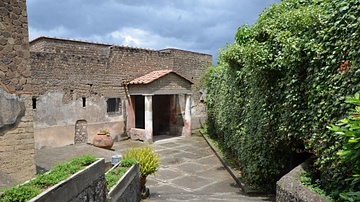
Image
Entrance to Villa San Marco in Stabiae
Covering an area of 11,000 sq metres (118,000 sq. feet), the Villa San Marco at Stabiae (modern Castelammare di Stabia) is among the largest Roman residential villas in the Vesuvian area (southern Italy). It was built in the 1st century BCE...
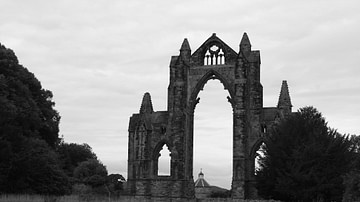
Image
Gisborough Priory
The ruin of Gisborough Priory, Guisborough, North Yorkshire (now Redcar and Cleveland), England. Founded in 1119 CE, the Augustinian priory was closed as part of the Dissolution of the Monasteries introduced by Henry VIII of England (r. 1509-1547...